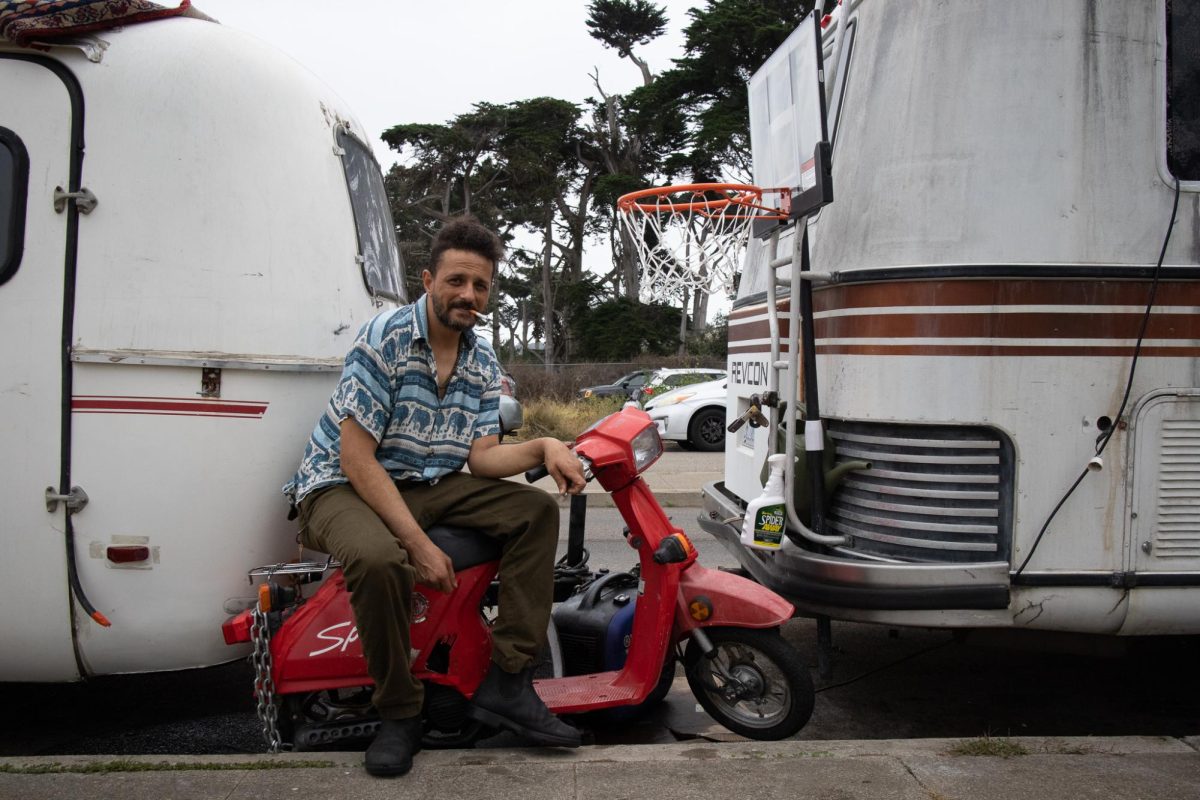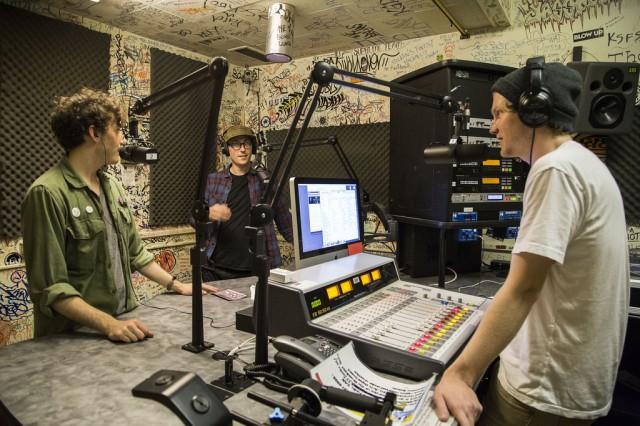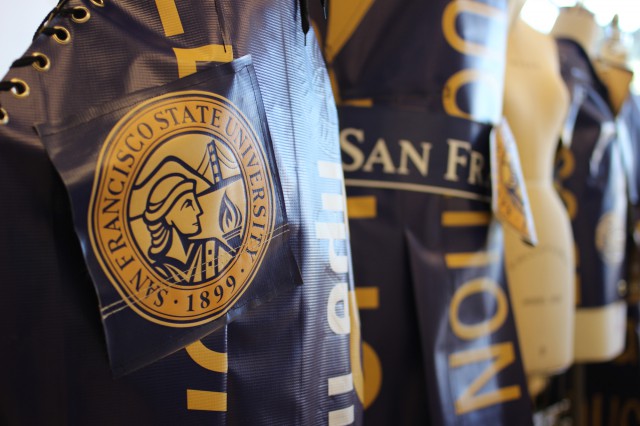
Written by Nicole Crittenden
Atop the second floor in the Cesar Chavez student center lies a student organization unlike any other in the nation. The room emits life and energy as people continually filter in and out. The sound of laughter and light conversation can be heard among the ringing phones and rustling of papers. A large stack of handwritten letters from inmates all over the country lay neatly banded together on various desks. Every chair in the small room is occupied as lunches are eaten and friends catch up. These are the sights and sounds of Project Rebound.
Project Rebound was started in 1967 by late SF State Professor John Irwin who had been incarcerated in the fifties and went on to obtain a college education after he was released. It is a student organization that provides services to formerly incarcerated men, women, and children with the goal of creating self empowerment and student success. It is run by four ex-convicts who are able to provide empathy rather than sympathy through their shared personal experiences.
“We provide services to a very distinct clientele, one that requires trust and understanding,” says Project Rebound office coordinator Joseph Miles.
It first starts with a level of trust between the students and the staff. Trust is the most important thing to build because it makes the challenge of asking for help easier.
The inmate’s mind goes into survival mode the moment they step foot in prison. What to expect is thrown to the wind, which carries away with it the person they truly are. That person is replaced with someone trying to survive their current situation. The mind goes through a transformation in order to adapt.
“You think you’ve got a game plan until you get punched in the mouth once you arrive,” says twenty-four-year-old Jared Walker. “You’ve just got to improvise and take it from there.”
Multiple times a week Walker commutes an hour and a half from his home in Fairfield to to attend classes at SF State in business administration and finance. He is one of the multiple faces you pass in the hallway and one of the many peers you share classes with, but behind his seemingly positive exterior, lies a formerly incarcerated student.
Three and a half years ago marked one of the biggest turning points of his life. Walker was arrested on charges of assault with a deadly weapon and sentenced to three years in prison.
“There is a lot of pain involved in being locked up and I knew I didn’t want to be a part of that,” says Walker, “so I made up my mind to get an education and be everything I always knew I could but I was too immature to realize before I went to prison.”
While in prison, Walker heard about Project Rebound from another inmate. He had never heard of something like this before and it sparked hope within him. Being faced with the pressures, politics, and violence within prison made him realize that he did not want to go back to a life on the streets. He became eager to find more information about Project Rebound. After he was released from prison, he did not waste any time with his goal of receiving an education. He knew he needed to seize the opportunity.
“I was released on October fifteenth of last year and less than a week later I was at SF State asking about Project Rebound,” Walker says.

After spending a considerable amount of time incarcerated, rehabilitation into society can be one of the most challenging things for anyone, especially students. Busy hallways and large classrooms can be intimidating after being isolated from society for many years. Feeling safe and secure, instead of feeling out of place is one of the goals for Project Rebound. Getting readjusted proved to be a challenge for Walker. The obstacles he faced seemed insurmountable, but Project Rebound helped him to realize that he could overcome them.
“You don’t really feel like a college student when you’re getting called into an office to pee in a cup every week. You feel like a criminal,” says Walker, “but Project Rebound put me at a university which makes a huge difference in how I see myself.”
Walker feels a boost in confidence when he tells people that he’s a university student. They don’t see him as a parolee but as an educated individual working towards something to better himself and his future.
“Imagine being incarcerated since before the time of cell phones and computers and then coming to SF State and being expected to understand iLearn,” says Miles.
The tasks that students who grew up in the technical age take for granted, simply using a computer or a cell phone, can be a real challenge for these students, and Project Rebound provides help without judgement .
Project Rebound also assists its students with obtaining books and financial aid and also helps students find scholarships and housing. Although emotional support is the key to academic success, a student cannot succeed without these needs being met too. These things also played a key role in Jared getting back on his feet.
To overcome these challenges and thrive in their academic career shows an admirable amount of courage and determination. This is most evident in Project Rebounds numbers of recidivism and graduation rates. Only three percent of the students who go through project rebound are reincarcerated, and ninety-four percent of their students graduate with a bachelors degree.
“Education is a sustained way to self-empowerment,” says Project outreach coordinator Erik Durnell.
Walker wants to help other people turn their lives around and seizes any opportunity he can get to talk with people and help them. He spends a lot of time in the Project Rebound room doing what he can to offer assistance. “I consider myself really blessed that I was able to come out of prison with my life, my freedom and my health,” says Walker.
Jared plans to graduate from SF State with honors and wants to go on to receive a masters degree in business. He wants to eventually start his own business that helps underprivileged people take care of their finances. Since people in these communities are not usually given the opportunity or resources to do so, he feels like this a way to contribute his passion for finance within his community.
“If you can alleviate poverty than you can alleviate the numbers of people going into the prison system and getting chewed up and spit out by it,” Walker says.









